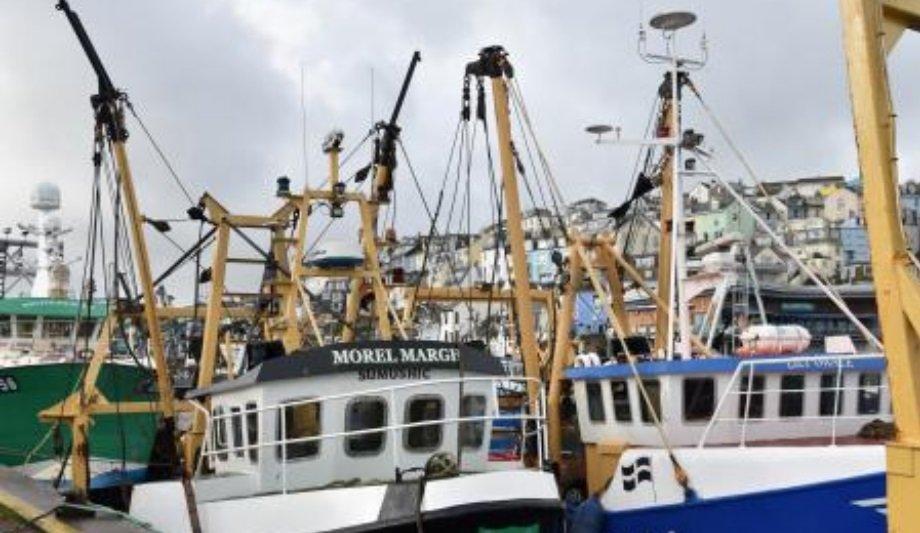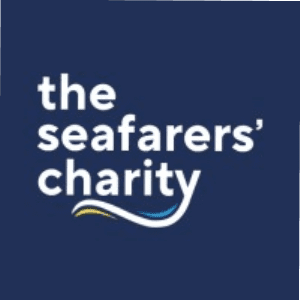The Seafarers’ Charity - a provider of grants and support to the maritime community - has received funding for a pilot project to develop safety management onboard fishing vessels to the standard of the Fishing Safety Management Code.
The new service is called Fishing First Safety Management by SafetyFolder and aims to improve safety in the UK fishing fleet and, at the same time, increase supply chain transparency.
Auditable safety standard
The Seafarers’ Charity’s Chief Executive, Catherine Spencer said: “I am delighted that funding has been secured for this pilot project as the addition of an auditable safety standard will transform vessel safety in the fishing industry. The Seafarers’ Charity is improving the lives of seafarers every day and ensuring fishers can work and return home safely from voyages without experiencing harm or accidents is a big part of that.”
The Seafarers’ Charity is coordinating this pilot project which has secured funding support
The Seafarers’ Charity is coordinating this pilot project which has secured funding support from the Marine Management Organisation (MMO), Fisheries and Seafood Scheme which has awarded £99,780 and the Trinity House DfT Maritime Safety Fund which has awarded £35,500. An industry steering group has been established and the development of safety management on board fishing vessels is fully supported by the Maritime and Coastguard Agency (MCA), which regulates and certifies UK fishing vessels.
Safety management practices
Speaking about the contribution from the UK Government’s Maritime Safety Fund, which was announced by Nusrat Ghani in her previous role as Shipping Minister, Nusrat said: “I am pleased to see this transformational project getting underway to bring about real improvements in safety standards for UK fishing. The Fund was set up to support improvements in maritime safety and this project provides practical support to the fishing industry to adopt a robust safety culture and, ultimately, save lives.”
The Seafarers’ Charity will take forward a pilot project in the South West of England for up to 50 fishing vessels to receive professional support to develop their safety management practices, the project will support operators to demonstrate compliance with ILO 188C Work In Fishing Convention by meeting the requirements of the Fishing Safety Management Code (MGN 596F), published by the MCA in 2017.
Improving safety standards
Documentation is to the standard of the Fishing Safety Management Code (MGN 596 F)"
Robert Greenwood, Director of the SafetyFolder explained how this funding will help improve safety standards within the fishing industry: “The majority of fishing vessels have begun recording risk assessments and safety activity in the SafetyFolder, but the new Fishing First service will give owners professional, customised support to complete a fully auditable Safety Management System for their vessel.”
“Documentation is to the standard of the Fishing Safety Management Code (MGN 596 F) and is designed to avoid duplication and align with the MCA’s Surveys and Inspections therefore simplifying compliance with legislation; ILO C 188.”
High-Risk industries
Adopting a Safety Management System has been a game changer in protecting workers from injury and saving lives in high-risk industries.
The data can also be produced as evidence of compliance during MCA vessel certification inspections
By adopting an auditable Fishing Safety Management System, operators are documenting all their safety and welfare activity and have peace of mind that they are compliant with regulations. The data can also be produced as evidence of compliance during MCA vessel certification inspections. Reducing risk is especially critical on fishing vessels which remain by far the highest risk industry in the UK with 100 times the risk of death compared to the average UK worker (ref MCA).
Onboard fishing vessels
There has been widespread support across the industry to develop the new audit structure for implementation of this safety management system. The Maritime and Coastguard Agency, which regulates and certifies UK fishing vessels, is fully supportive of the use of Safety Management Systems to improve safety onboard fishing vessels and the industry support being given to this project.
“The development of Safety Management Systems and ensuring that data contained within them is a good match with the regulatory requirements, are important contributions to safety. This will lead to more operators having a good quality system in place for the safe management of operations on board their fishing vessels,” said David Fenner, Head of Fishing Safety at the MCA.
Supply chain transparency
Fishing remains one of the most dangerous occupations in the UK and throughout the world"
Both consumers and the wider seafood industry have a growing interest in sustainability and transparency of how seafood is caught. Consumers and the supply chain are looking more closely at ethical issues and how food is produced and working conditions for those involved.
Operators adopting a fully auditable safety system for their business can demonstrate supply chain transparency and develop the potential to add value to their business as a producer of ethically sourced seafood.
“Fishing remains one of the most dangerous occupations in the UK and throughout the world. The isolated nature of the work means that workers can be at a greater risk of sub-standard working conditions that would not be tolerated in other sectors.”
Independent fishing representatives
Therefore, we are putting our full support behind the Fishing First Safety Management System"
“Whitby Seafoods, along with our retail and food service customers have policies that manage and mitigate human rights risk in their supply chains. The Fishing First Safety Management pilot, through an independent auditing process, provides assurance that vessels are complying with health and safety and welfare laws as well as meeting the requirements of our customers’ policies.”
“Whitby Seafoods believe that it is essential that fishers have working conditions and work agreements that befit a modern industry. Therefore, we are putting our full support behind the Fishing First Safety Management System,” said Giles Bartlett, Whitby Seafoods Fishery Improvement Manager.
The Fishing First Safety Management by SafetyFolder will launch as a pilot service in South West England with widespread industry backing and Steering Group membership including: The Maritime & Coastguard Agency, Seafish, The Seafarers’ Charity, Morrisons, Whitby Seafoods, National Federation of Fishermen’s Organisations, Scottish Fishermen’s Federation, Welsh Fishermen’s Association and independent fishing representatives.











